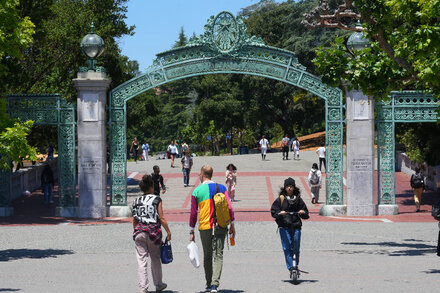WASHINGTON – The Trump administration has formally asked the Supreme Court to consider allowing the end of birthright citizenship, a move that challenges a cornerstone of American constitutional law and decades of legal precedent.
The petition, filed Friday, seeks a reinterpretation of the 14th Amendment’s Citizenship Clause, which states that “All persons born or naturalized in the United States and subject to the jurisdiction thereof, are citizens of the United States and of the State wherein they reside.” The administration argues that the phrase “subject to the jurisdiction thereof” does not apply to children born in the U.S. to parents who are not legal residents or citizens.
This legal challenge, if accepted by the Supreme Court, could have profound implications for millions of individuals and the definition of American citizenship. Legal scholars and civil rights organizations have swiftly condemned the administration’s stance, citing a long history of interpretation that affirms birthright citizenship for nearly all individuals born on U.S. soil.
Arguments for Reinterpretation
Sources within the administration indicated that the legal argument centers on the original intent of the 14th Amendment, which they contend was primarily aimed at granting citizenship to formerly enslaved people and was not intended to extend to children of foreign nationals, particularly those unlawfully present in the country.
“Our administration is committed to ensuring that our immigration laws serve the national interest,” a senior Department of Justice official stated, speaking on background. “We believe a careful re-examination of the 14th Amendment’s ‘subject to the jurisdiction thereof’ clause is necessary to address the modern challenges of our borders and sovereignty and align our laws with the practices of many other nations.”
The administration’s legal filing reportedly suggests that children of undocumented immigrants are not “subject to the complete jurisdiction” of the United States because their parents owe allegiance to another sovereign nation. This interpretation diverges significantly from the prevailing legal understanding established by the Supreme Court’s 1898 decision in *United States v. Wong Kim Ark*, which affirmed birthright citizenship for children of non-citizens residing in the U.S.
Legal and Constitutional Challenges
The move has ignited a fierce debate among constitutional law experts, many of whom consider birthright citizenship a bedrock principle that has contributed to the nation’s stability and integration of immigrant populations.
“The text of the 14th Amendment is unambiguous, and over a century of legal interpretation has affirmed birthright citizenship for all born on U.S. soil,” commented Professor Eleanor Vance, a constitutional law expert at Georgetown Law Center. “To challenge this now is to undermine a fundamental pillar of our constitutional order and create immense legal uncertainty for millions of American citizens.”
Civil rights and immigrant advocacy groups have vowed to vigorously oppose the administration’s efforts, characterizing them as an attack on human rights and the U.S. Constitution.
“This move is not only legally dubious but morally reprehensible,” said Maria Sanchez, President of the National Immigrant Rights Coalition. “It threatens to relegate generations of American-born individuals to a permanent state of precariousness, fundamentally altering the fabric of our nation and creating a permanent underclass.”
The Supreme Court will now decide whether to take up the case. If it agrees to hear the challenge, the ruling could reshape American society and provoke extensive legal and political fallout.
Source: Read the original article here.





